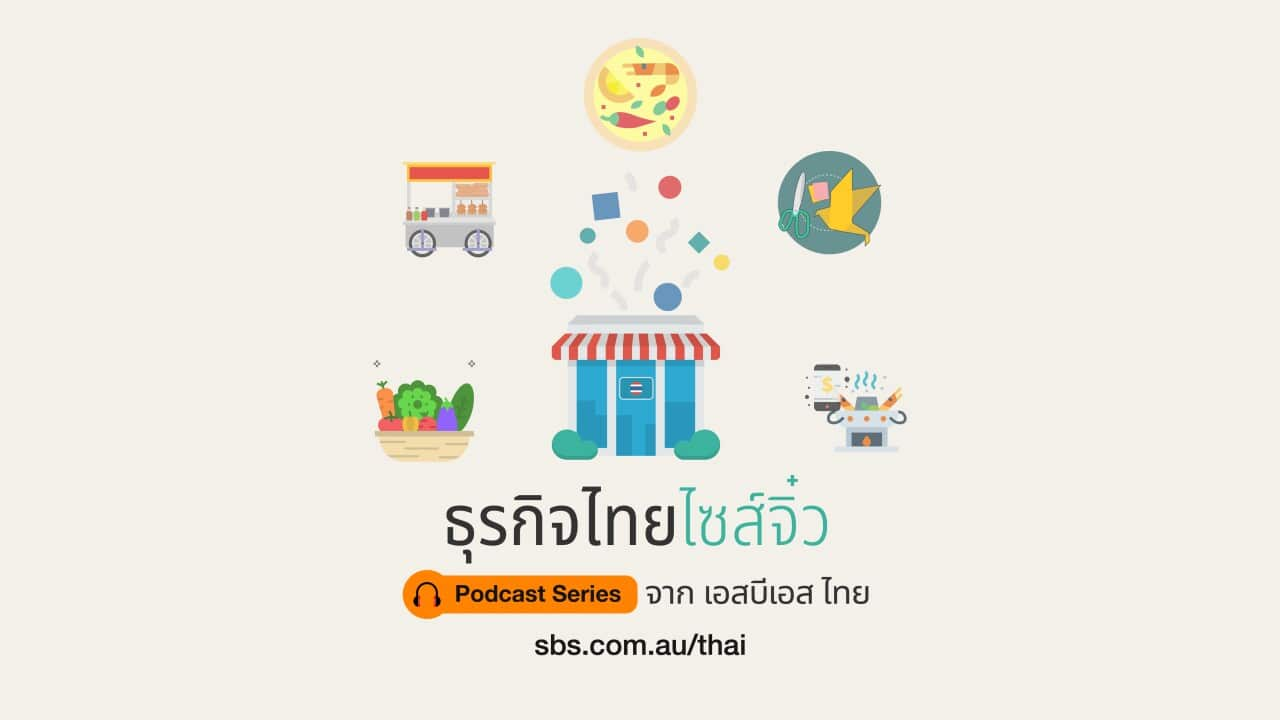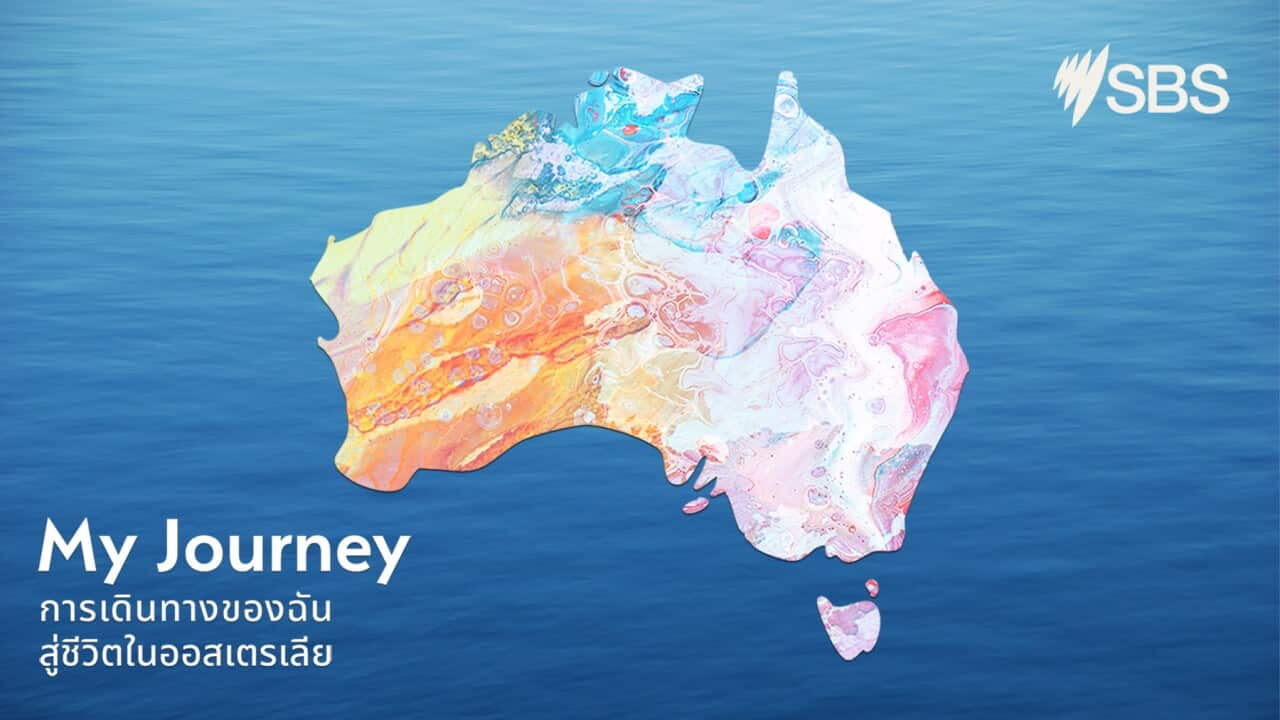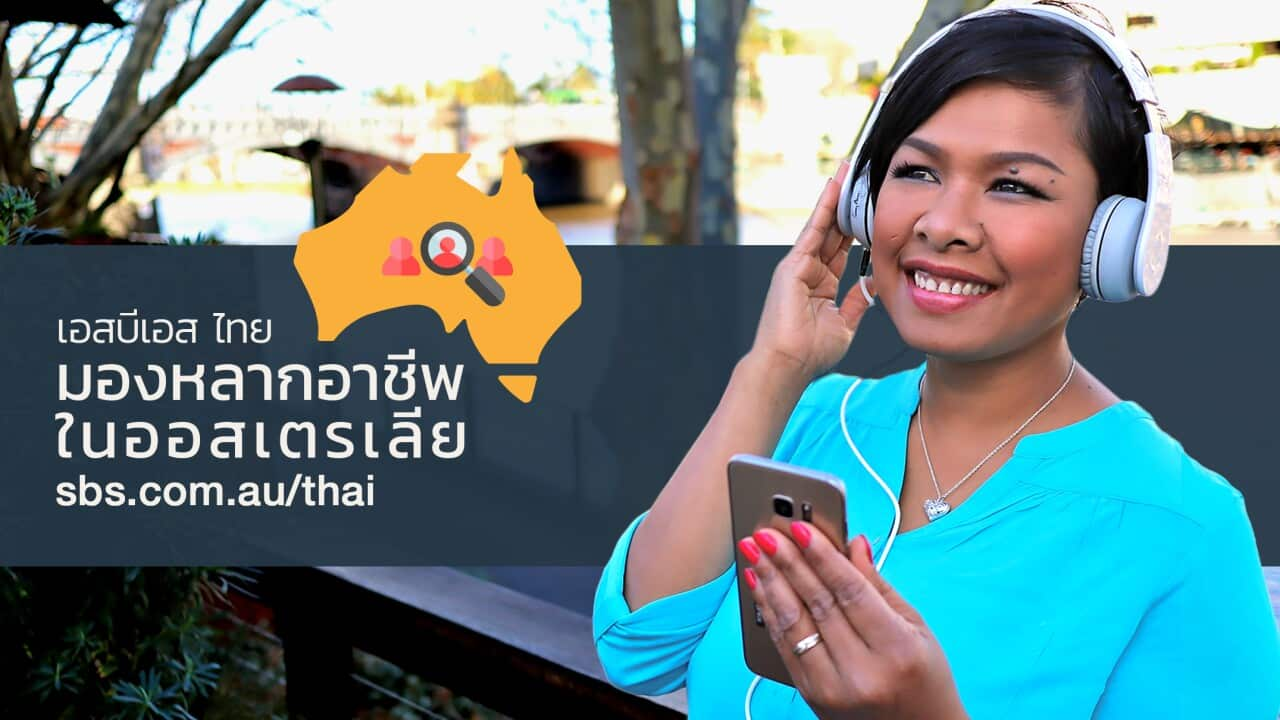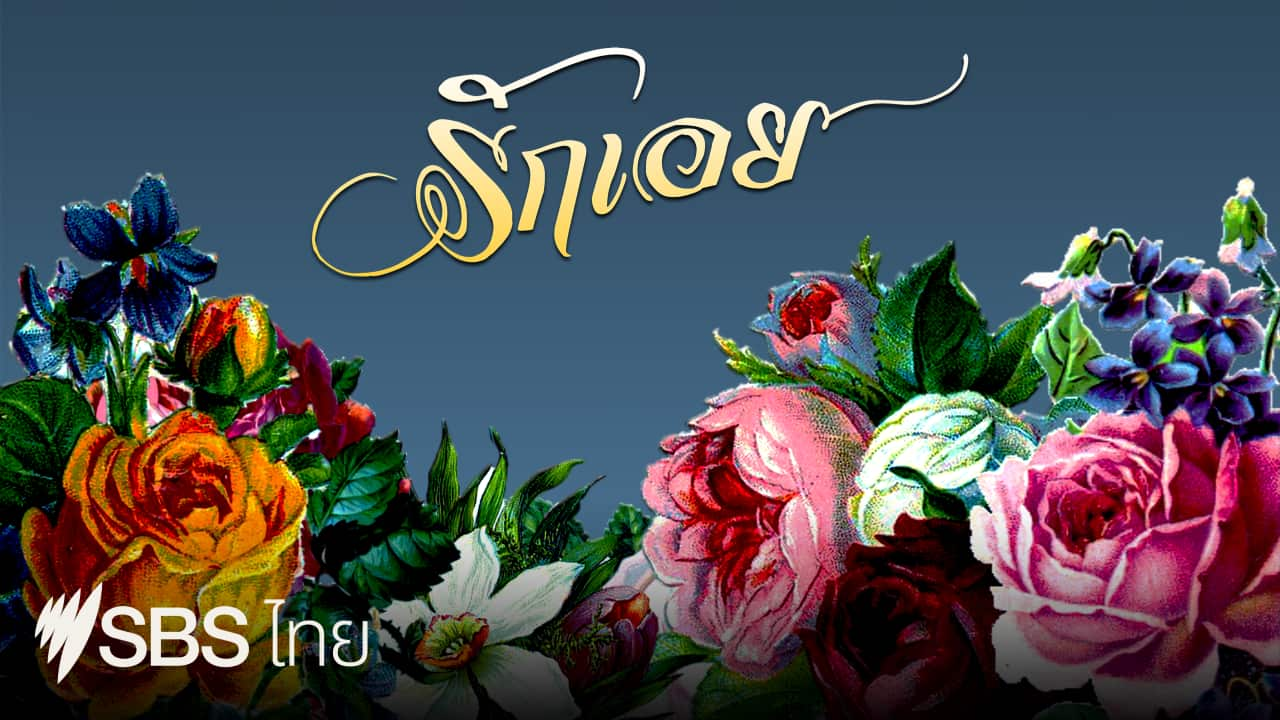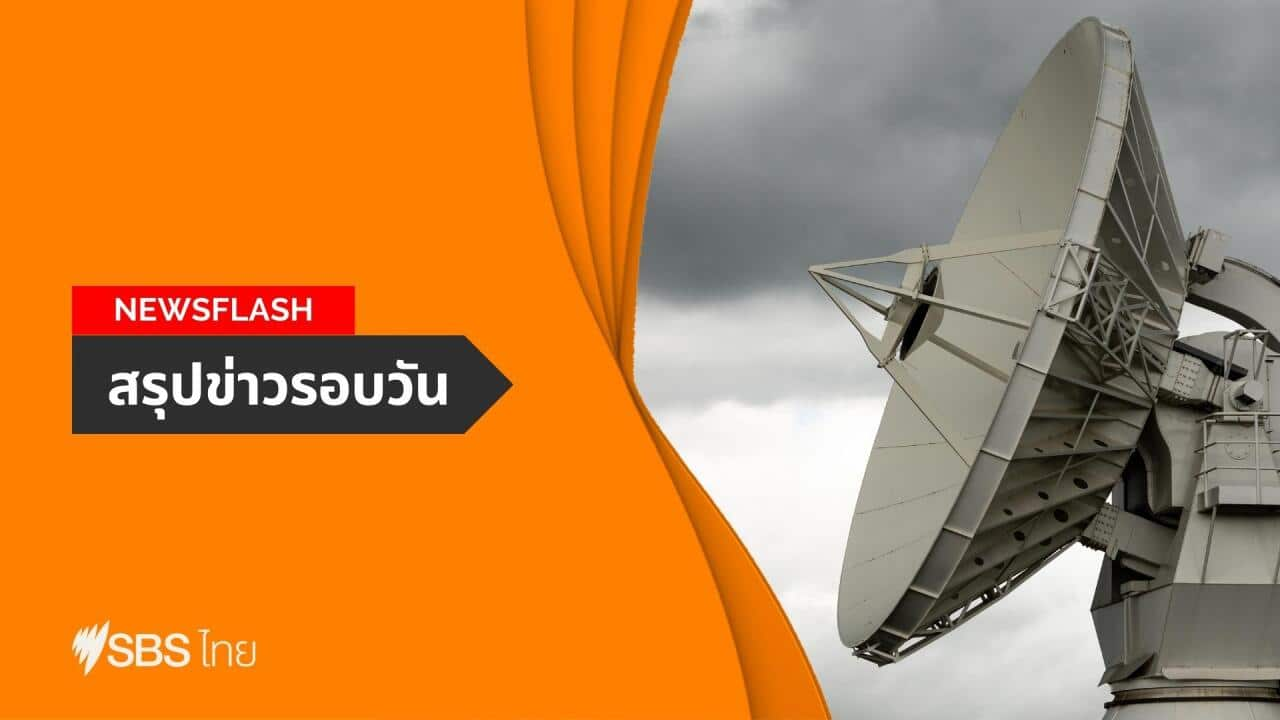จะช่วยเหลือคุณในการพูด เข้าใจ และเชื่อมต่อกับผู้คนในออสเตรเลีย -
บทเรียนในตอนนี้เหมาะกับผู้เรียนในระดับกลางสูงไปจนถึงระดับสูง หลังจากฟังจบแล้ว
คำอธิบายสำหรับบทเรียนนี้
จุดประสงค์ในการเรียนรู้
เข้าใจวิธีการตอบคำถามที่พบได้ทั่วไป 3 ข้อในการสัมภาษณ์งาน
- อะไรที่ทำให้คุณสมัครงานในตำแหน่งนี้
- อะไรคือจุดแข็งหลักของคุณ
- อะไรคือจุดอ่อนที่ใหญ่ที่สุดของคุณ
วลีต่าง ๆ ที่ใช้ในการพูดเกี่ยวกับตนเองระหว่างการสัมภาษณ์งาน
- I applied for this position because I really value what your company does. (ฉันสมัครงานในตำแหน่งนี้เพราะฉันให้คุณค่ากับสิ่งที่บริษัทของคุณทำ)
- This job is an opportunity for me to continue building my skills and to further my career. (งานนี้เป็นโอกาสสำหรับฉันในการพัฒนาทักษะของฉันต่อไป และเพื่อความก้าวหน้าในอาชีพการงาน)
- I feel my skill set is a perfect fit for your team, and, because of my past experience, I think I can start immediately contributing results for this role. In other words, I’m confident I can “hit the ground running”. (ฉันรู้สึกว่าทักษะของฉันเหมาะสมเป็นอย่างดีสำหรับทีมของคุณ และเนื่องจากประสบการณ์ของฉันในอดีต ฉันคิดว่าฉันสามารถเริ่มมีส่วนร่วมในผลลัพธ์สำหรับตำแหน่งงานนี้ได้ทันที พูดอีกอย่างก็คือ ฉันมั่นใจว่าฉันสามารถเริ่มงานได้เลย)
- I'm flexible and easy going. I have a solid work ethic, and my attitude towards work is solution oriented. (ฉันเป็นคนยืดหยุ่นและเข้ากับคนได้ง่าย ฉันมีจรรยาบรรณที่แข็งแกร่งในการทำงาน และทัศนคติของฉันต่อการทำงานก็คือให้ความสำคัญกับการแก้ปัญหา)
- I have an excellent track record of consistently meeting deadlines and working successfully under pressure. (ฉันมีประวัติที่ดีอย่างสม่ำเสมอในการทำงานเสร็จตามเวลาที่กำหนด และทำงานได้สำเร็จภายใต้แรงกดดัน)
วิธีต่าง ๆ ในการพูดเกี่ยวกับจุดแข็งของคุณ
- I’m a very hard worker (ฉันเป็นคนทำงานขยันขันแข็ง)
- I really enjoy my work (ฉันรู้สึกสนุกกับงานของฉัน)
- I’m very meticulous about my work - this means that you work very carefully (ฉันพิถีพิถันกับงานของฉัน สิ่งนี้หมายความว่าคุณเป็นทำงานอย่างระมัดระวัง)
- I can work well under pressure - this means that you can work quickly/to a deadline (ฉันสามารถทำงานภายใต้แรงกดดันได้ หมายความว่าคุณสามารถทำงานได้อย่างรวดเร็วและเสร็จทันเวลา)
- I have a cool head in an emergency - this means that you don’t panic (ฉันเป็นคนใจเย็นในเหตุฉุกเฉิน หมายความว่าคุณจะไม่ตื่นตกใจ)
- I like working as part of a team or alone, whatever the position requires. (ฉันชอบที่จะทำงานเป็นทีมหรือทำคนเดียวก็ได้ แล้วแต่ว่าตำแหน่งงานต้องการแบบไหน)
- I’m collaborative and a good listener - this means that you work well with other people (ฉันเป็นคนทำงานร่วมกับผู้อื่นและเป็นผู้ฟังที่ดี หมายความว่าคุณทำงานร่วมกับคนอื่นได้ดี)
- I’m prepared to take the initiative - this means that you can think for yourself (ฉันพร้อมที่จะริเริ่ม หมายความว่าคุณสามารถคิดได้ด้วยตนเอง)
- I’m good with people (ฉันอยู่กับผู้คนได้ดี)
- I have a solid practical background (ฉันมีพื้นฐานซึ่งใช้ได้จริง)
สำนวนต่าง ๆ
- To read a room – การประเมินผู้ฟัง ทำความเข้าใจอารมณ์ทั่วไปของคนที่อยู่ภายในห้อง สิ่งที่พวกเขาต้องการรู้ และวิธีการมีส่วนร่วมกับผู้คนเหล่านั้น
คำศัพท์ต่าง ๆ และภาษาพูด
- Detail-oriented – ความสามารถในการใส่ใจและสังเกตรายละเอียดปลีกย่อยเล็ก ๆ ได้อย่างใกล้ชิด
- Easy going - สบาย ๆ และมีความอดทน
- Flexible – พร้อมและสามารถเปลี่ยนแปลงและปรับเปลี่ยนให้เข้ากับสถานการณ์ต่าง ๆ ได้
- Initiative – ความสามารถในการประเมินและดำเนินการอย่างเหมาะสมได้อย่างอิสระ
- Multitasking – สามารถทำได้หลายอย่างในเวลาเดียวกัน
- Solid work ethic – มีความขยันและต้องการทำอย่างดีที่สุด
- Solution-oriented – มุ่งเน้นไปที่การแก้ปัญหา ไม่ใช่ที่ตัวปัญหา
- Soft skills in a working environment (ซอฟท์สกิลในการทำงาน) – ลักษณะที่ทำให้คุณเป็นพนักงานที่ดี เช่น การเข้ากับผู้อื่น การสื่อสาร และการแก้ปัญหา
- Hard skills in a working environment (ฮาร์ดสกิลในการทำงาน) – ความสามารถที่วัดผลได้ เช่น การใช้งานเครื่องจักรกลหนัก ความสามารถในการใช้โปรแกรมคอมพิวเตอร์บางชนิด ทักษะด้านการตลาด ฯลฯ
ข้อมูลทางวัฒนธรรม
การสัมภาษณ์งานในออสเตรเลียอาจค่อนข้างไม่เป็นทางการ และคุณสามารถเรียกว่าที่ผู้จัดการหรือหัวหน้างานของคุณด้วยชื่อจริงได้ แทนที่จะเรียกด้วยคำนำหน้าอย่าง Sir หรือ Madam
แต่ถึงแม้การสัมภาษณ์งานในออสเตรเลียจะค่อนข้างไม่เป็นทางการ แต่คุณยังคงต้องแสดงว่าเหมาะสมกับตำแหน่งงานนั้นด้วยภาษาที่เหมาะสม คำตอบของคุณจะต้องแสดงว่าคุณมีทักษะที่ระบุไว้ตามรายละเอียดงานพร้อมยกตัวอย่าง นอกจากนี้ คุณยังต้องแสดงให้เห็นว่าคุณเหมาะสมกับบริษัทที่คุณสมัครงานรวมถึงค่านิยมของบริษัท และมีความรู้เกี่ยวกับองค์กรที่คุณจะได้ร่วมงาน

Women meeting in business office Source: Getty Images / Digital Vision
Transcript
(หมายเหตุ: ไม่ใช่บทถอดเสียงแบบคำต่อคำ)
Hello, welcome to the SBS Learn English podcast, where we help Australians to speak, understand and connect.
My name is Josipa, and I know what it’s like to learn English as a second language too. Today we are learning how to talk about ourselves during a job interview.
I was invited to a panel job interview when I applied for my current job. A panel interview is when two or more interviewers interview you at the same time.
The whole experience was less stressful because I came prepared. I had learned some buzzwords and practised talking about my professional experiences.
Buzzwords are words or phrases that are trendy and important in a specific context. They tend to change over time as times change. We'll hear plenty of job-related buzzwords in this episode.
Also, we’ll hear how to answer three very common interview questions from an Australian employer.
So, let’s start. Today, Allan has applied for a vacant role, meaning a position that is available, in Maryanne’s company, and his interview is in progress. Let’s hear how he answers Maryanne’s first question.
Maryanne:
So, Allan what prompted you to apply for this job?
Allan:
I applied for this job because I really value what your company does. Also, I feel my skill set is a perfect fit for your team and because of my experience, I think I can start immediately contributing results for you in this role.
How would you answer Maryanne’s question? Why did you apply for a job?
The first thing that comes to my mind is to say that I need more money or because of a shorter commute from home to work, but that is not what an employer wants to hear.
Employers want to hear that you are excited about sharing your skills, contributing to the company's success and furthering your career.
If you further something, it means you help it progress and make it more successful.
Let’s hear once more what Allan said,
I applied for this position because I really value what your company does.
Allan values this company. It means that he considers their work to be important or beneficial.
And that’s exactly what his future employer wants to hear.
However, Allan’s answer could be even better if he gave an example of something the company does and explained how his professional skills align with those values.
Company values are the core principles and beliefs that drive business and its employees, and when you align with those values, it means you agree with them.
Let’s say that in the job description for the job I’m applying for, there is an emphasis on team leadership and project management.
I could say, “This job is an opportunity for me to continue building my leadership and project management skills, and these will help further my career”.
And then I would give specific examples of my soft skills and hard skills relevant for the job.
By the way, soft skills are also known as ‘interpersonal skills’ or ‘people skills’ like communication, optimism, flexibility, being a team player and so on.
Hard skills are abilities that you can measure, such as technical, practical skills - like the ability to use computer programs.
Now, let’s hear the second part of Allan’s answer one more time.
Well, I feel my skill set is a perfect fit for your team.
"And because of my experience, I think I can start immediately contributing results for you in this role."
Allan feels his skill set is a perfect fit for the team and because of his experience, he thinks he can start immediately contributing in this role.
Again, this is a great answer that could be even better if you give specific examples of your experience.
Now let's move on to the second-most often asked question,
Maryanne:
What are your key strengths?
Allan:
I have a solid work ethic, and my attitude towards work is solution-oriented. I'm flexible and easy going. I have an excellent track record of consistently meeting deadlines and working successfully under pressure. I also have strong communication skills, which helps me work well with both customers and team members.
When a potential employer asks about your key strengths, they want to make sure that your talent, personality, and knowledge are relevant to the role you are applying for.
Allan said,
I have a solid work ethic, and my attitude towards work is solution-oriented. I'm flexible and easy going.
That is a great way to describe yourself, and if you end up using it, provide an example from one of your previous jobs that can prove your statement.
The same goes for the following phrase,
I have an excellent track record of consistently meeting deadlines and working successfully under pressure.
Every employer wants to hear this, but these phrases won’t impress them much unless you can provide specific examples of exactly how you consistently met deadlines and worked successfully under pressure.
So, it is a good idea to think about your top three strengths and real-life examples before going to the interview.
The final question we are going to look at can be very challenging to answer.
Maryanne:
What are your biggest weaknesses?
Allan:
I am the biggest critic of my work, and this sometimes means that I can find it difficult to let go of a project. I can always find something that I could improve. To help myself become more realistic, I've started to give myself deadlines for revisions so that I don’t keep changing things right up until the last minute, so I became more proactive about changes rather than waiting until the last minute.
Well, Allan’s answer didn’t sound like a weakness to me. And that’s the trick.
Allan chose to talk about a weakness that actually demonstrates that he is responsible and capable of helping the company to avoid minor mistakes.
What Allan did is he found a positive way to talk about his weakness.
Another way we can answer this challenging question is to mention a weakness that is not essential for the job we are applying for.
Let’s say Maryanne applied for an accountant role in a small family company.
She could answer the question about her biggest weakness like this,
Maryanne:
I'm terrified of public speaking. While I don't need to do public speaking in this role, I still feel that it's an important skill, so I enrolled in a public speaking course, and I'm currently in training.
Maryanne mentioned a weakness that wouldn't prevent her from performing well in the role she is applying for.
It’s time we speak with our guest who is actually my boss. His name is Davide Schiappapietra.
As a Head of Language Content, Davide, you've been a part of many panel interviews here at SBS. Are job interviews in Australia any different from, let's say, Europe or Asia?
Davide:
A little bit, yes. In Australia, interviews can be pretty informal. The atmosphere is usually somewhere between friendly and professional. Also, here you can feel free to address your potential manager or boss by their first name instead of calling them Sir, Madam, or similar.
Josipa:
What would be your number one tip for a successful performance?
Davide:
Come prepared. Your answers need to address the skills mentioned in the job description with specific examples and show that you are a good fit for the company, its values and know something about the organisation you want to join. Also, it's great if you can be relaxed, or at least overcome your nervousness, and try to read the room so that you can communicate more efficiently.
Josipa:
Read the room? Sorry, but what does that mean?
Davide:
To read the room means assessing your audience, understanding the general mood of the people in a room, even a virtual room if your interview is online, what they want to know, and how to engage them. As I said, job interviews can be quite informal here, so sometimes it's appropriate to tell a joke or to have a laugh with your future employer.
Josipa:
Thank you for your time, Davide. Much appreciated.
Davide:
Thank you for inviting me.
A big thank you to our educational consultant Professor Lynda Yates, our guests Davide Schiappapietra, Rajish Aryal, and Paul Nicholson and Coni Laranjeira who voiced the characters of Allan and Maryanne.
เรื่องราวอื่น ๆ ที่น่าสนใจจาก เอสบีเอส ไทย

สงครามชีวิต

